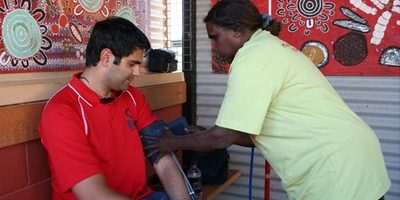
George Institute researchers among recipients of Heart Foundation grants
Two George Institute researchers have been named as recipients of the Heart Foundation’s latest round of grants.
Dr Amanda Wang has been awarded a 2021 Vanguard Grant of $150,000 over two years for a pilot study on the benefits of a type of glucose lowering medication in patients with acute kidney injury. Acute kidney injury (AKI) is common in hospital care and rates are increasing. It is also common in patients with diabetes, especially in diabetic kidney disease where almost a third of patients have AKI. Dapagliflozin – from a class of newer glucose lowering agents called SGLT2 inhibitors – is known to have cardiovascular and renal benefits in patients with chronic kidney disease but its effects in AKI are not known.
Dr Wang, a senior research fellow at The George Institute and specialist nephrologist at Concord Hospital, will conduct a pilot study to look at the effect of dapagliflozin on cardiovascular outcomes in patients with type 2 diabetes who have recovered from AKI. It is hoped that this pilot study will pave the way to establishing a large scale randomised controlled trial.
Dr Sonali Gnanenthiran has been awarded a 2021 Postdoctoral Fellowship of $150,000 over two years to evaluate new uses for old medicines or new combinations of medicines in patients with cardiovascular disease. New medicines typically cost hundreds of millions of dollars and take over a decade to develop. Repurposing already approved medicines has the potential to rapidly provide safe, effective and affordable therapies.
Dr Gnanenthiran, a research fellow at The George Institute and practising cardiologist, will conduct a series of studies to assess the benefits of this approach in treating and preventing cardiovascular events. This project encompasses several studies ranging from basic science to clinical trials including: (i) assessing an anti-inflammatory drug as a new blood thinner in elderly people; (ii) leading an international collaboration to assess a blood pressure lowering medicine to improve outcomes in patients with COVID-19, and (iii) developing new polypills to treat heart disease.
Repurposing commonly used drugs has potential to help both clinicians by rapidly translating research into best practice and policy, and people at high risk by supporting priority research in these groups.



